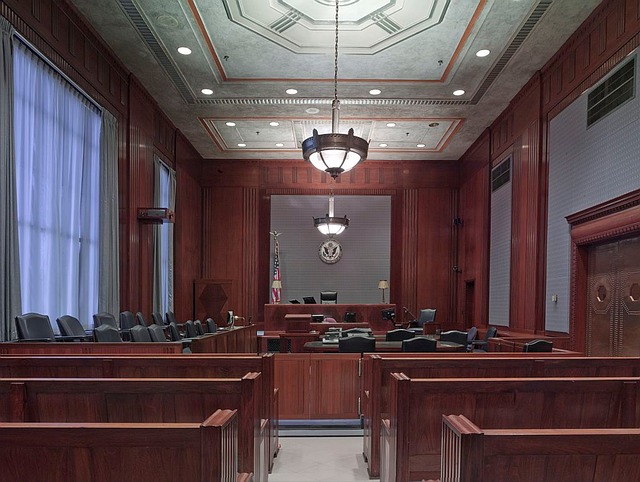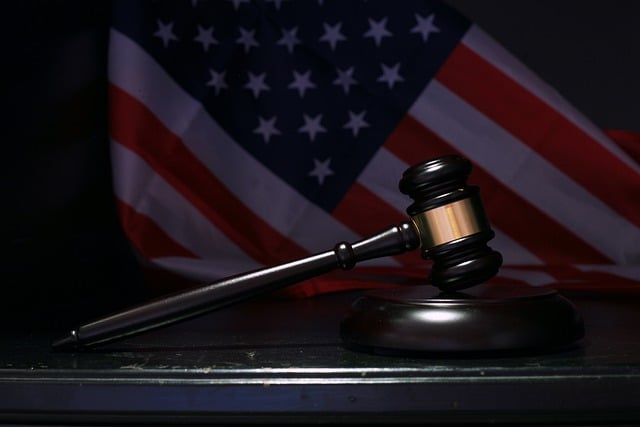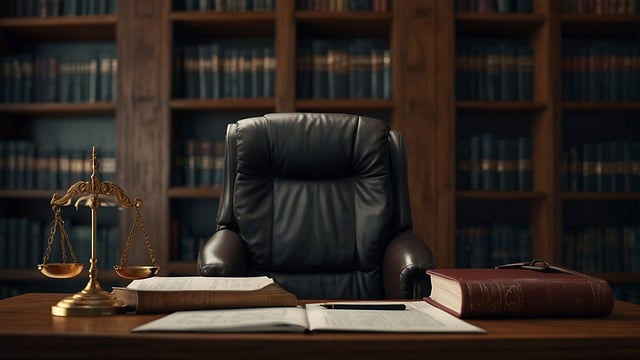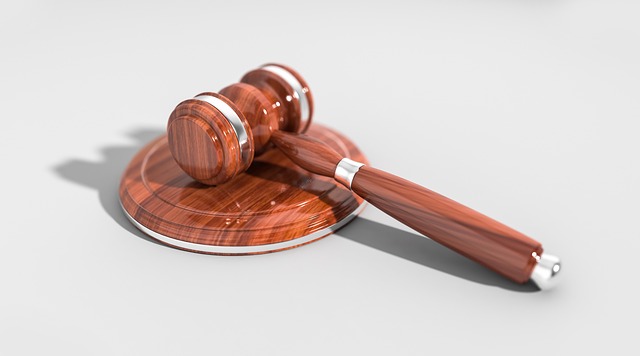Intellectual property (IP) disputes are complex legal challenges requiring specialized knowledge and representation. Expert IP attorneys are indispensable for navigating the intricate federal and state laws that govern patents, trademarks, and copyrights, ensuring the protection of their clients' intellectual property rights. These attorneys offer comprehensive legal guidance, interpreting complex statutes, advocating for just outcomes, and defending against infringement to support innovation and economic growth. They are adept at litigating in the formal courtroom setting, utilizing profound knowledge of property rights within the IP legal framework to address patent infringement, trademark disputes, and copyright violations. Their role is crucial in protecting inventions and creative works, presenting evidence, dissecting arguments, and applying precise legal reasoning to substantiate proprietary claims. Additionally, skilled IP attorneys effectively use alternative dispute resolution (ADR) methods like mediation and arbitration for efficient and cost-effective resolutions of IP conflicts, preserving the confidentiality and integrity of the intellectual property in question. Whether through ADR or litigation, their expertise ensures a fair legal process that honors the fundamental rights enshrined within property law and IP statutes.
When intellectual property (IP) conflicts arise regarding your property, the stakes are high. The intricacies of IP law demand specialized knowledge to navigate these disputes effectively. This article delves into the pivotal role of experienced attorneys in both courtroom advocacy and out-of-court settlements for property-related IP disputes. We explore the legal perspective on complex IP laws, outline strategies for resolving conflicts without litigation, and demystify the litigation process when IP conflicts reach the courtroom. Understanding your rights and the legal landscape is paramount in safeguarding your intellectual assets.
- Navigating Complex IP Laws for Property Disputes: A Legal Perspective
- The Role of Experienced Attorneys in IP Courtroom Advocacy
- Strategies for Resolving Intellectual Property Disputes Out of Court
- Understanding the Litigation Process for IP Conflicts in the Courtroom
Navigating Complex IP Laws for Property Disputes: A Legal Perspective

In the realm of intellectual property (IP), disputes over patents, trademarks, and copyrights can be as intricate as they are critical to resolve. Property owners encountering IP conflicts must navigate the dense thicket of federal and state laws that govern such matters. These laws, crafted to protect the rights and innovations of individuals and entities alike, demand a keen understanding of legal nuances and the ability to articulate one’s case effectively within the courtroom. Expert attorneys specializing in IP law bring a wealth of knowledge and experience to these disputes, ensuring that their clients’ interests are safeguarded through meticulous analysis and strategic litigation. Their role is pivotal in interpreting complex statutes, arguing for fair outcomes, and securing the intellectual property rights essential for innovation and commercial success.
The courtroom setting, with its formal procedures and high stakes, can be daunting for those without a background in law. Here, the nuances of IP disputes are examined under a microscope, with every detail subject to rigorous scrutiny. Seasoned attorneys adeptly maneuver through legal proceedings, advocating on behalf of their clients by leveraging their deep understanding of property rights within the context of IP law. Their expertise is invaluable, as they not only navigate the complexities of legal precedent but also negotiate the intricacies of patent infringement, trademark disputes, and copyright violations to achieve resolutions that protect their clients’ intellectual assets. In these cases, the counsel of an experienced IP attorney is not just beneficial—it is indispensable for safeguarding one’s intellectual property in the face of legal challenges.
The Role of Experienced Attorneys in IP Courtroom Advocacy

In the intricate realm of intellectual property (IP) litigation, experienced attorneys play a pivotal role in safeguarding proprietary innovations and creative works within the courtroom setting. These legal experts are adept at navigating the complex web of IP laws that govern patents, trademarks, copyrights, and trade secrets. Their deep understanding of these statutes allows them to effectively argue the nuances of property rights, ensuring their clients’ intellectual assets are protected against infringement. In the courtroom, an experienced attorney’s command of legal precedent, coupled with strategic litigation skills, is instrumental in advocating for a favorable outcome for their client’s IP disputes. They meticulously present evidence, scrutinize opposing arguments, and employ precise legal reasoning to validate their clients’ proprietary rights, thereby upholding the integrity of the IP law within judicial proceedings.
The art of persuasion in the courtroom is a critical aspect of IP litigation, where experienced attorneys excel in presenting compelling arguments for property protection. Their adeptness in legal rhetoric, combined with their ability to translate complex technical details into understandable terms for judges and juries, is essential. This skill set ensures that the intrinsic value of their clients’ intellectual property is recognized and respected by all parties involved. Through their advocacy, these attorneys work tirelessly to secure judgments or settlements that honor the rights inherent in IP law, thereby contributing to a fair and balanced legal landscape for all stakeholders in the intellectual property domain.
Strategies for Resolving Intellectual Property Disputes Out of Court

When intellectual property (IP) disputes arise, navigating through the legal landscape without stepping into a courtroom can be both cost-effective and time-saving. Experienced attorneys specializing in IP law often employ a range of alternative dispute resolution (ADR) methods to settle these conflicts amicably. Mediation and arbitration are two such ADR strategies that allow parties to maintain control over the outcome, as opposed to placing their fate in the hands of a judge or jury. In mediation, a neutral third party facilitates negotiations between the parties, guiding them towards a mutually acceptable solution. This process is particularly beneficial when the dispute involves complex property issues where both sides have valuable intellectual assets at stake. Additionally, arbitration offers a more formal setting with a trained arbitrator or panel making a binding decision, which can be advantageous for parties seeking a definitive resolution without the extensive procedures of a courtroom. Both methods are designed to preserve the confidentiality of proprietary information and foster a collaborative environment conducive to resolving IP disputes.
Understanding the Litigation Process for IP Conflicts in the Courtroom

When disputes arise over intellectual property (IP), navigating the litigation process in a courtroom is a critical step for resolution. The courtroom setting is where legal battles over IP rights are contested, and it’s here that experienced attorneys play a pivotal role in representing their clients’ interests. Understanding the nuances of IP law is essential, as it governs the rules and regulations surrounding inventions, designs, trademarks, and copyrights. In the event of a conflict, plaintiffs must demonstrate clear ownership or usage rights over the property in question, which often involves complex evidence and expert testimony to substantiate their claims.
The litigation process for IP conflicts is structured and methodical, with several stages that include the pleadings phase, discovery, pre-trial motions, and trial. During discovery, both parties exchange information relevant to the case, including documents, witness statements, and evidence that supports or refutes the claims. This phase is crucial as it lays the groundwork for the ensuing legal proceedings, allowing attorneys to build a compelling case based on factual and legal merit. In the courtroom, the application of property law intersects with IP law to determine the validity of claims, the infringement of rights, and the remedies available under the law. Here, experienced attorneys are instrumental in maneuvering through complex legal doctrines, advocating for their clients’ rights, and pursuing just outcomes in IP disputes.
When facing intellectual property disputes, the intricacies of property law necessitate expert legal counsel. The journey through these complexities is best navigated with experienced attorneys who can provide invaluable advocacy in the courtroom and strategic solutions for resolving conflicts outside of it. Understanding the litigation process for IP conflicts is paramount, as it underscores the importance of leveraging specialized legal expertise to protect your interests effectively. In conclusion, whether through out-of-court settlements or courtroom litigation, the guidance of seasoned professionals is indispensable in safeguarding intellectual property rights and achieving just resolutions.
